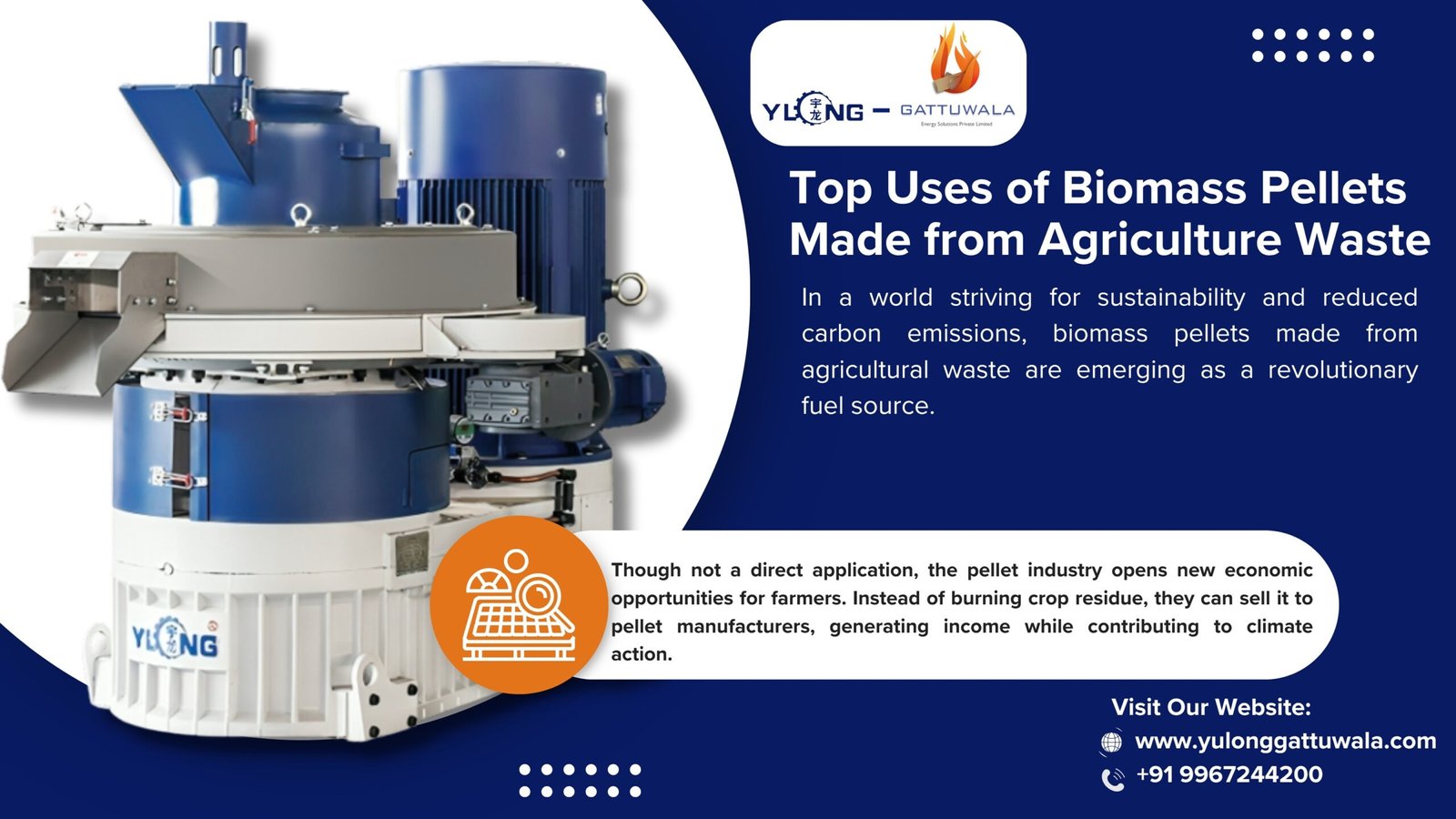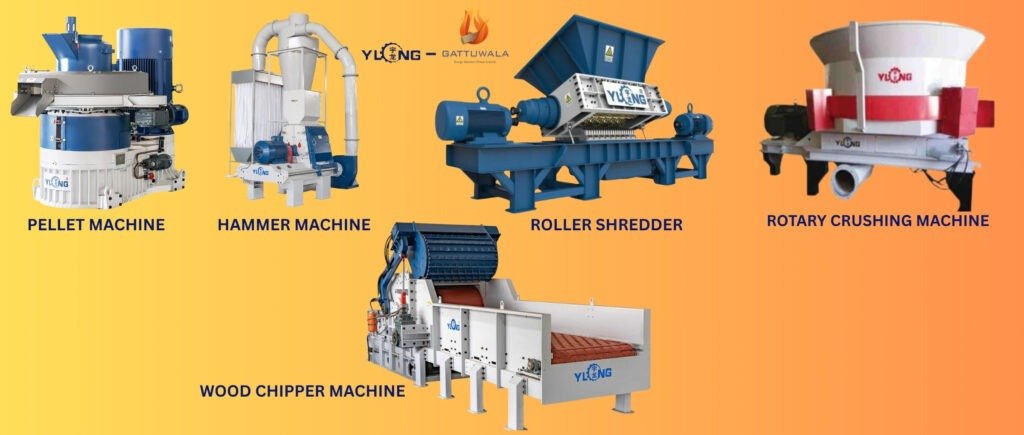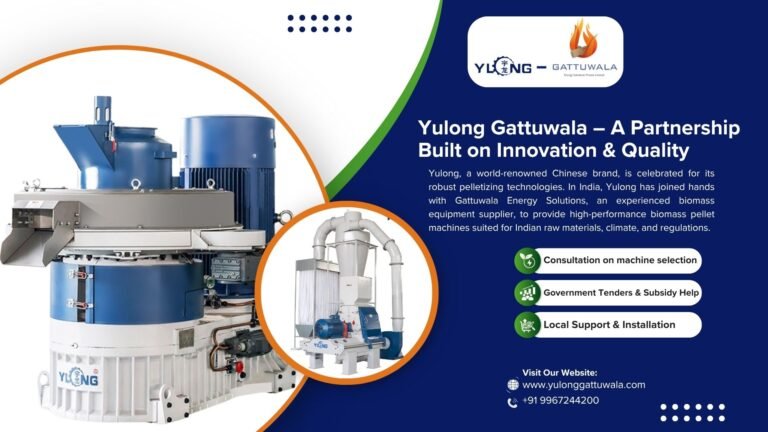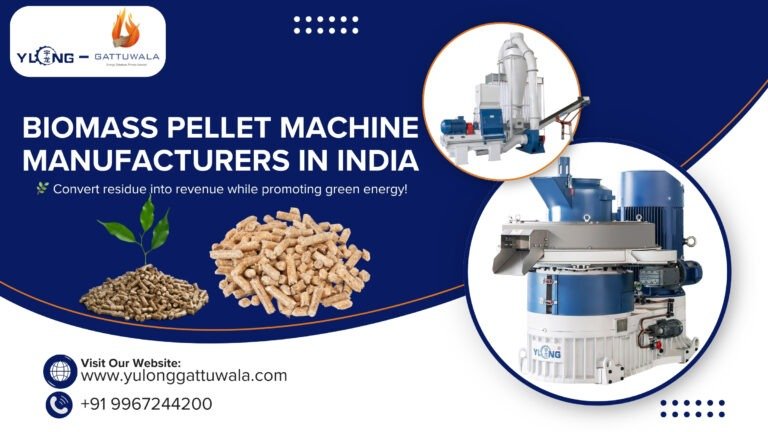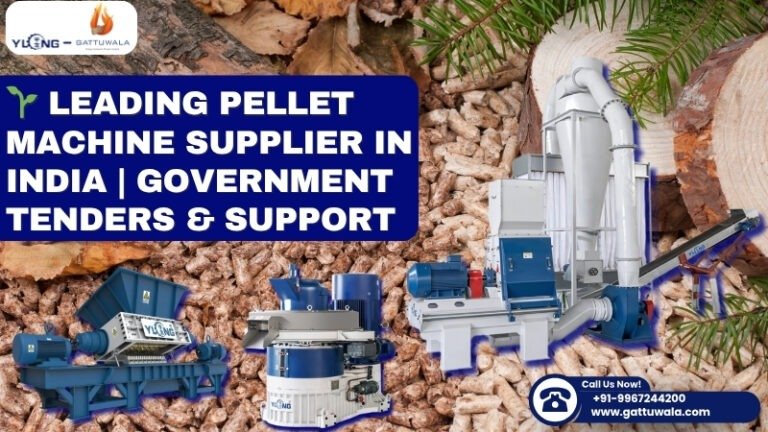- June 27, 2025
In a world striving for sustainability and reduced carbon emissions, biomass pellets made from agricultural waste are emerging as a revolutionary fuel source. With increasing global attention on eco-friendly energy alternatives, India—rich in agricultural residue—has begun leveraging this untapped resource to meet growing energy demands. Biomass pellets are not only cost-effective but also a sustainable solution to combat waste management issues while powering industries, homes, and rural economies.
🌾 What Are Biomass Pellets from Agricultural Waste?
Biomass pellets are small cylindrical fuels made by compressing agriculture waste such as rice husk, wheat straw, cotton stalks, sugarcane bagasse, and other crop residues. These pellets offer high calorific value, low moisture content, and consistent combustion, making them an excellent alternative to coal, wood, or LPG.
The production of biomass pellets is a green initiative that not only reduces stubble burning but also empowers farmers by turning crop residue into profit.
🔥 1. Industrial Heating & Boilers
One of the top uses of biomass pellets is in industrial heating applications. Industries like textiles, food processing, pharmaceuticals, and chemicals often require consistent heat for steam generation. Traditionally, coal or diesel is used for this purpose. Replacing them with biomass fuel pellets reduces operational costs and carbon footprints.
Why industries prefer biomass pellets:
• High thermal efficiency
• Lower emissions than coal or diesel
• Compliance with environmental regulations
🏭 2. Power Generation
Biomass pellets are used in biomass-based thermal power plants or co-firing with coal in existing plants. They serve as a carbon-neutral fuel, helping India meet its renewable energy targets. Co-firing biomass pellets with coal reduces greenhouse gas emissions while making use of existing coal-fired infrastructure.
Government incentives and renewable energy policies further promote the use of biomass pellets for power generation across India.
🏠 3. Residential and Commercial Heating
In colder regions of North India, biomass pellet stoves and boilers are gaining popularity in homes, hotels, and institutions. Unlike traditional wood stoves that release harmful smoke, pellet stoves burn cleanly, with minimal particulate emissions.
These compact heating units are easy to use, and pellets are easy to transport and store, making them a convenient heating solution.
🍕 4. Cooking Fuel in Rural Areas & Institutions
In rural India, community kitchens, schools, and NGOs are shifting from firewood or LPG to biomass pellet-based cookstoves. These stoves:
• Cook faster
• Produce less smoke
• Use locally available agricultural waste pellets
It helps reduce dependency on expensive or polluting fuels while offering a safer cooking environment, especially for women and children.
🌱 5. Organic Fertilizer Production (Post-Ash Use)
An underrated but important use of biomass pellet ash is in the production of organic fertilizers. The ash is rich in potassium, calcium, and other nutrients. When used properly, it can improve soil fertility, supporting sustainable agriculture practices.
🚜 6. Income Source for Farmers
Though not a direct application, the pellet industry opens new economic opportunities for farmers. Instead of burning crop residue, they can sell it to pellet manufacturers, generating income while contributing to climate action.
With support from biomass pellet machine manufacturers and government subsidies, even small-scale rural entrepreneurs can establish pellet production units.
🌐 Future Outlook: Why Biomass Pellet Usage Is Growing in India
India generates over 500 million tons of agricultural waste annually. The government, under initiatives like the National Bio-Energy Mission and SATAT (Sustainable Alternative Towards Affordable Transportation), promotes biomass usage in various sectors.
Biomass pellet machine manufacturers in India and biomass fuel suppliers are growing rapidly, supported by:
• GST benefits
• Soft loans and equipment subsidies
• Public procurement through government tenders
Biomass pellets made from agriculture waste offer a win-win solution—reducing pollution, generating clean energy, and supporting rural livelihoods. From power generation to residential heating and organic farming, the uses of these pellets span across sectors.
As the need for renewable energy intensifies, biomass pellets stand out as a reliable and scalable solution. Embracing this eco-friendly fuel means not only protecting our environment but also empowering our farmers and industries for a sustainable future.


